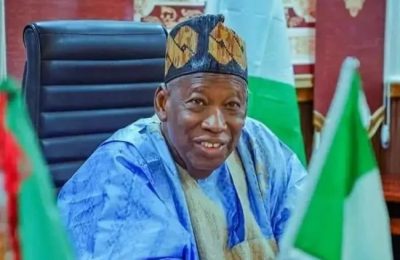
Only one month ago, the tax reform bills currently receiving the attention of the National Assembly and the attention of a section of Nigerians, were discussed by this column. On 2 November when it was published, the bill was still dripping with freshness and had not generated as much interest as it has done now. Indeed, 2 November, 2024 was a period when the eyes were still in the dark and knowledge about the four executive bills was so scarce. That time, only a few members of the various interest groups that are now discussing the bills with feverish agitation, knew that they were four in number. It wouldn’t be shocking if it is found that many still do not know the bills and their nomenclature. For people like that, the bills are: the Joint Revenue Board of Nigeria (Establishment) Bill, 2024 – SB.583; The Nigeria Revenue Service (Establishment) BILL, 2024 – SB.584; The Nigeria Tax Administration Bill, 2024 – SB.585; and the Nigeria Tax Bill, 2024 – SB.586. You are welcome, no need to thank me…
When these bills were the topic earlier on this platform, they were neither named nor listed. The discussion was based on the reactions emanating from parts of the country then and how the president would react to it. The drift then was that since the bills had begun to attract negative attention of Northern Nigeria, which had shown a strong hand against them, it would be a test of President Bola Ahmed Tinubu’s resolve. It was couched in a language commonly used by members of the Kegites Club. The opinion of 2 November as expressed in this column was that the bills would serve as a test of Tinubu’s Kariability.

Indeed, the envisaged test of Tinubu’s kariablity has begun. This envisaged tax reform is now like a whirlwind. It is blowing all over the land. This wind has stirred actions, it has also brought with it a whole lot more, including arguments which Nigerians could see going on around the bills daily. There is also a growing tension in and out of the National Assembly in addition to the heavy horsetrading and intensive lobbying there. However, what is going on around the tax reform bills varies and they hit you depending on how or where you stand on the envisaged tax reform. In other words, how the bill affects you is like Fela’s Yellow Fever effect—you either catch it or it catches you. There are also angles to it which are pointing from subtle threats to outright warnings. These are directed to and from certain quarters, while there have also been pleas and suasion.
The shenanigans around the bills are aimed at either getting to see that they are killed or (put mildly) stopped; or that are aimed at getting to the point of seeing them passed into law and subsequently assented to by President Bola Ahmed Tinubu. Whichever side of the tax reform you belong to, there is something for you—you are either an antagonist or a protagonist. And for both sides, the National Assembly will not be the same again. The South-South caucus in the Senate has endorsed the bill and this is simply the onset of a message to those who see the bill differently.
Since the time this column discussed the bill and its import on President Tinubu’s resolve, there have been many twists and turns. Most Nigerian newspapers have been feasting on the story with the tax reform bills constantly making their front pages. This week alone, that is from 2–6 December, 2024, there have been headlines that tell one passionate tale or the other of the maneuvres around the proposed tax reforms by the government of President Tinubu. For instance, on Monday, 2 December, the reports were that the majority All Progressives Congress (APC) in the House of Representatives aborted a planned meeting and suspended debate on the bills indefinitely. On Tuesday, December 3rd, the reports were that the government, in explaining the bills and in an attempt to douse the tension, assured Nigerians that TETFund, NASENI, NITDA and other such outfits would not be scrapped as a consequence of the bills being passed. The next day, Wednesday, December 4th, newspapers reported that Tinubu had directed the country’s Ministry of Justice and the National Assembly to liaise and work on how to address Nigerians’ concerns and related issues. However, protests over the bills by lawmakers from northern Nigeria et al still persisted even after all the assurances. On Thursday, newspapers went to town with reports that the Senate had suspended action on the tax reform bills and postponed debate on it indefinitely. However, on Friday (yesterday) the reports were that the Senate President, Godwill Akpabio, said it was not true that they were suspending action on the bills and that Nigerians should ignore the action of his deputy, Jibrin Barau, who took charge of proceedings on Wednesday. And the beat goes on…
There is no need to look at what is happening among Nigerians in the social media regarding the bills. The resourceful but often bitter X is one of the most fertile places to catch the feeling of the angry Northern Nigeria and their traducers. There is home to all kinds of expressions for and against the bill, with the North versus South lines well pronounced, although the South East is blurred in the configuration.
What obviously has to be the high point of the drama in the National Assembly is the entry of the Deputy Senate President, Jibrin Barau and the Senate President, Godswill Akpabio, into the arena. With these men on the stage in the tax reform drama, we have finally arrived at its denouement and we are about to see the curtain drawn. Let us not lose sight of the happenings in Kano on Friday regarding the bills and the planned address by the Emir of Kano, Sanusi Lamido Sanusi. However, there are some other ways to look at the whole issue from the North-South prisms. Following Thursday’s reports, it is sure for the deputy senate president that reprieve has been achieved, even if temporarily. The reports that would be gaining currency in his part of the country are that he has achieved the suspension of action on the bitterly hated bills. By fanning the embers of the flame of the bills’ suspension, his political corpus would subsequently be saved from asphyxiation. It is a clever move by both the Senate and all those in this, but can we run away from what is to come beginning with the tax reform bills? Now may be the time to bring Usman Dan Fodio in vivid relief. He said, “A kingdom can endure with unbelief but it cannot endure with injustice.”
It looks like changes will begin to take place in Nigeria, and it would trigger some other kinds of transformations in the country. The tax reform bills have inadvertently set the tone for what is to come, and we appear to have set our feet on the road to restructuring.
READ ALSO: FIRS boss allays fears over new tax bills







